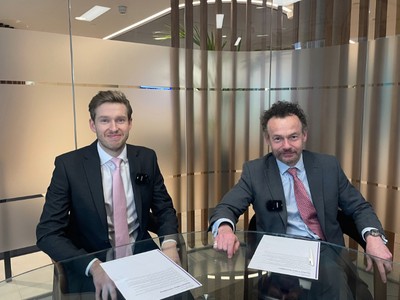It is important to remember that every holding within the Coleman Street Funds (and the majority of investments in the majority of funds) represents a real economic interest in a real business or asset.
We tend to invest in these businesses because we think that they will now, or in the future, generate more profits and cash than they can productively reinvest. At that point, we expect those businesses to return some of those profits and cash to shareholders in the form of a dividend. That is our reward as loyal investors and can be either paid out to unit holders in cash or it can be reinvested to increase the number of shares held across other businesses in the fund.
In a world where investments can often be reduced to charts on a screen, three letter acronyms or short-term stock tips, it is sometimes worth reminding ourselves what some of the holdings in which we have a genuine economic interest pay as a dividend.
RELX, the software, analytics and publishing company is one of our largest holdings in the UK. In July, they reported a half-year dividend of 14.3p per share – that’s 5% higher than the 13.6p they paid this time last year. Their full year dividend is now expected to be 49p versus the 47p paid last year. If you have £10,000 invested in Coleman Street you have approximately 9 RELX shares as part of a global and diversified portfolio. That means last year they would have returned to you roughly £4.20 and this year they are now expected to return to you another roughly £4.40.
Diageo, the global drinks company and owner of brands such as Guinness, Gordon’s and Johnnie Walker is another UK listed business held in the fund. They too reported results in July where they told us that the full year dividend would be 72.55p per share – that’s 4% higher than the 69.88p they paid this time last year. With a similar £10,000 Coleman Street investment you would have approximately 5 Diageo shares as part of the same global and diversified portfolio. Based on a full year of profits, Diageo would have returned to you roughly £3.50 last year and this year just over £3.60.
In a final example, Games Workshop - the owner and manufacturer of Warhammer, the world famous miniature war-gaming brand - reported results also in July and announced a dividend of 235p per share. That’s a whopping 62% increase on the 145p per share paid out last year. The same £10,000 investment in Coleman Street would hold roughly 1 Games Workshop share. That means £1.45 of cash returned last year and another £2.35 returned this year.
Not every business that we invest in will have surplus cash now. Some will have so many opportunities to reinvest profits that we would rather they do just that – if invested well it is likely to lead to even more surplus cash further down the line. However, the returns that these businesses provide or will provide are real and they are meaningful.
The three businesses above make up significantly less than 5% of Coleman Street’s investments but their combined cash return of roughly £9.15 last year and another £10.35 this year based on a £10,000 fund investment is not insubstantial. We hope they will return more than £11 on the same basis next year and perhaps significantly more in the years ahead.
James Godrich is the fund manager of the CSI Funds.
Fund holdings may vary and the number of shares mentioned is for indicative purposes only. The value of investments and the income from them can go down as well as up and investors may not get the amount originally invested. Past performance is not a reliable indicator to future results.




